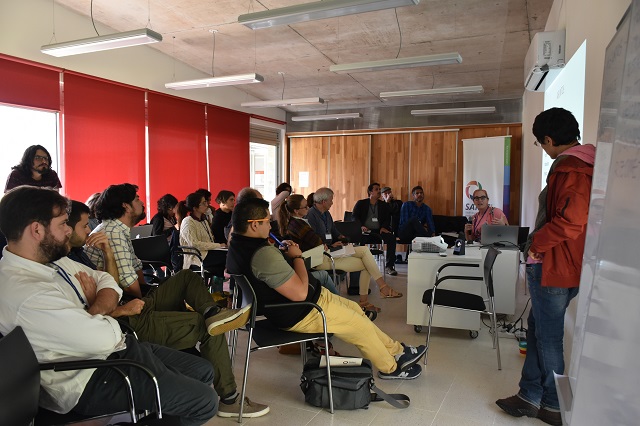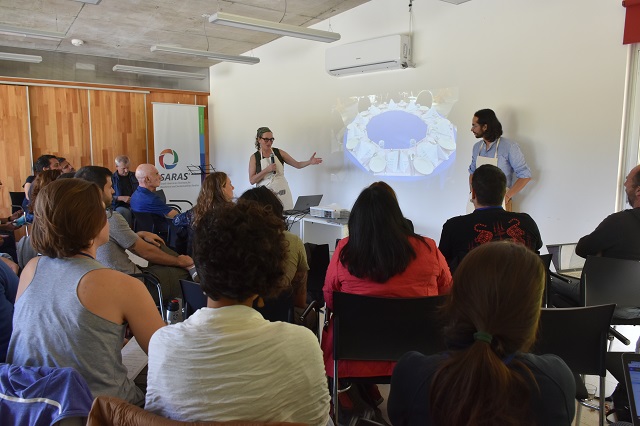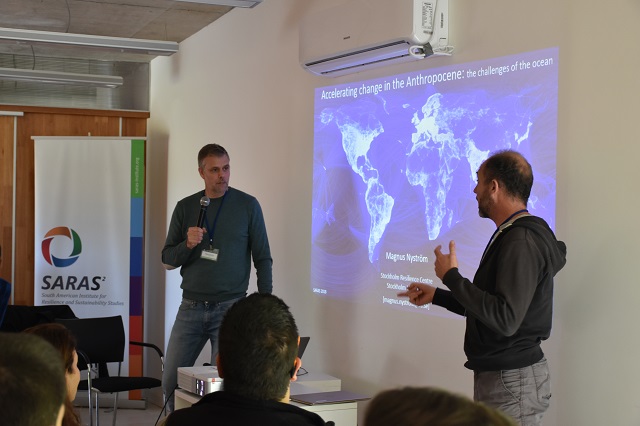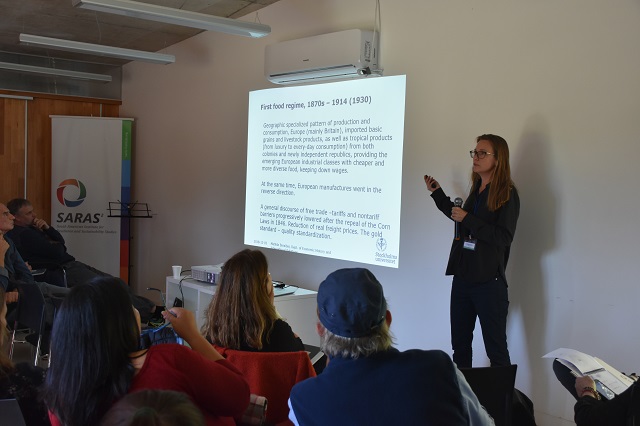SARAS holds international course on social-ecological systems research in Latin America
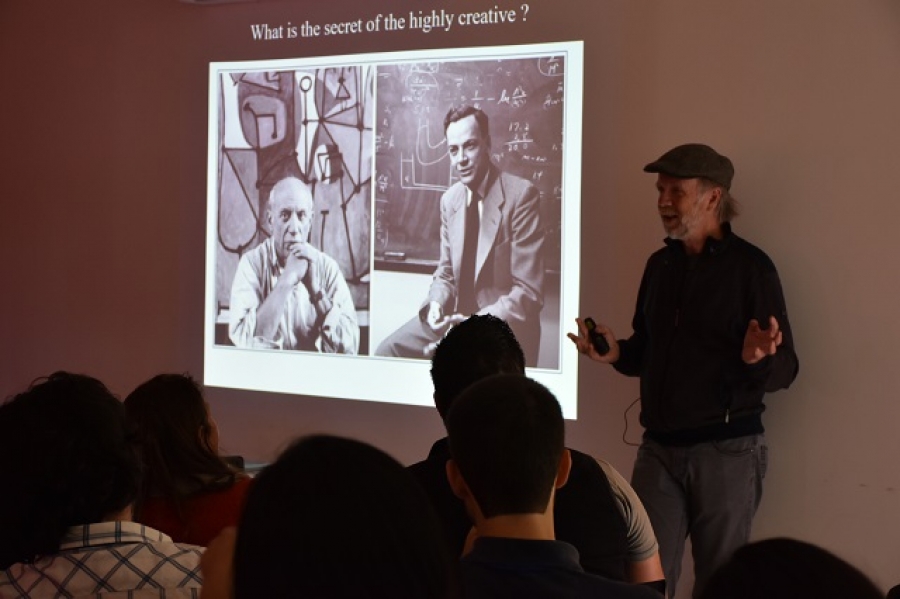
The course entitled “An introduction to social-ecological systems research in Latin America”, developed within the context of the SARAS 2018 Public Conference “Ecosystem services knowledge development and decision making”, took place last December 2nd to 6th at the headquarters of the SARAS Institute in Bella Vista, Maldonado, Uruguay.
Students were selected from a call within SARAS members to nominate doctoral students or professionals starting their research or artistic careers working on or interested in socio-ecological dynamics, resilience and sustainability.
The cohort was formed by a group of 17 students from different backgrounds and areas of work, coming from a variety of universities and research centers located in Argentina, Australia, Brazil, Canada, Chile, Colombia, Costa Rica, Spain, Peru and Uruguay which included: Interdisciplinary Center for Aquaculture Research (INCAR), Catholic University of Uruguay (UCU), Pontifical Catholic University of Peru (PUCP), University of Waterloo (UW), University of the Republic (Udelar), Federal University of Rio Grande do Norte, University of Buenos Aires (UBA), National Patagonic Center of Puerto Madryn (CENPAT-CONICET), Technological University of Sydney- Australia, University of Rosario, University of Salamanca, Tropical Agricultural Research and Teaching Center (CATIE), and National University of Coastline (UNL).

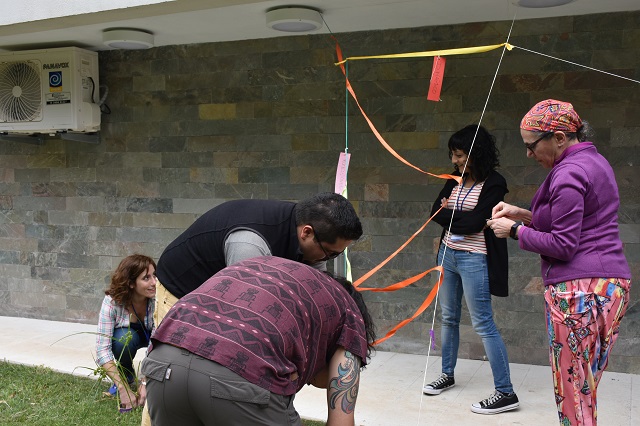
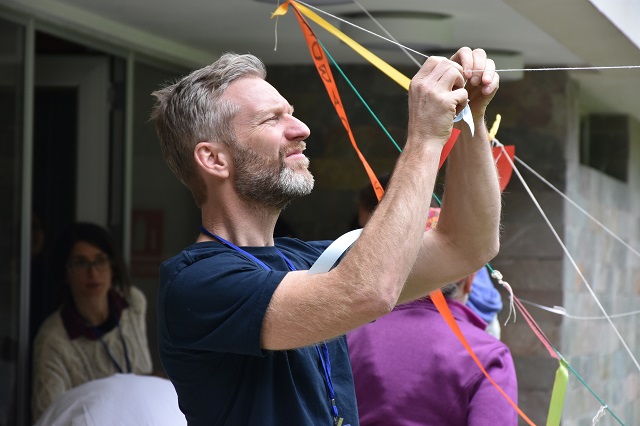
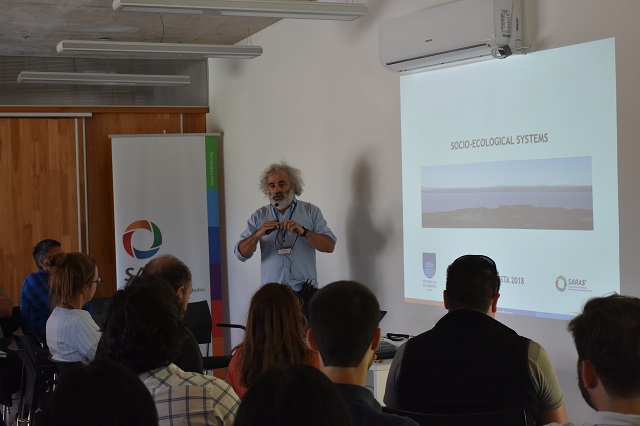
The main goals of the course were: a) to present conceptual frameworks and work methodologies for the study of socioecological systems; b) to present methodologies that allow answering the different questions that arise when doing research on socioecological systems; and c) to explore the role played by the sciences, the arts and the humanities in the investigation of socio-ecological systems.
The course was delivered by a teaching staff coming from different scientific and artistic fields and with ample experience doing inter and transdisciplinary work and research, together with members of SARAS. The group was comprised by Marten Scheffer (Wageningen University), Laurie-Beth Clark (University of Wisconsin-Madison), Jesse Kercheval (University of Wisconsin-Madison), Patricia Balvanera (National Autonomous University of Mexico), Albert Norström (Program on Ecosystem Changes and Society-PECS), Jorge Marcone (University of Rutgers-New Brunswick), Virginia Lucas (Artigas Institute -IPA) , Francisco Gazitua (Artist), Angela Leible (Artist), Cristina Zurbriggen (University of the Republic), Henrik Österblom (Stockholm Resilience Center), Stefan Gelcich (Pontificia Universidad Católica de Chile), Micaela Trimble (SARAS Institute), Therese Lindahl (Beijer Institute), Matias Piaggio (Tropical Agricultural Research and Higher Education Center), Magnus Nystrom (Stockholm Resilience Center), Esteban Jobbágy (National University of San Luis – CONICET), Eduardo Viola (University of Brasilia), Matilda Baraibar (Stockholm University), and Juan Rocha (Stockholm Resilience Center – Beijer Institute). The course leaders consisted of: Juan Rocha, Albert Norström, Henrik Österblom and Matilda Baraibar.
